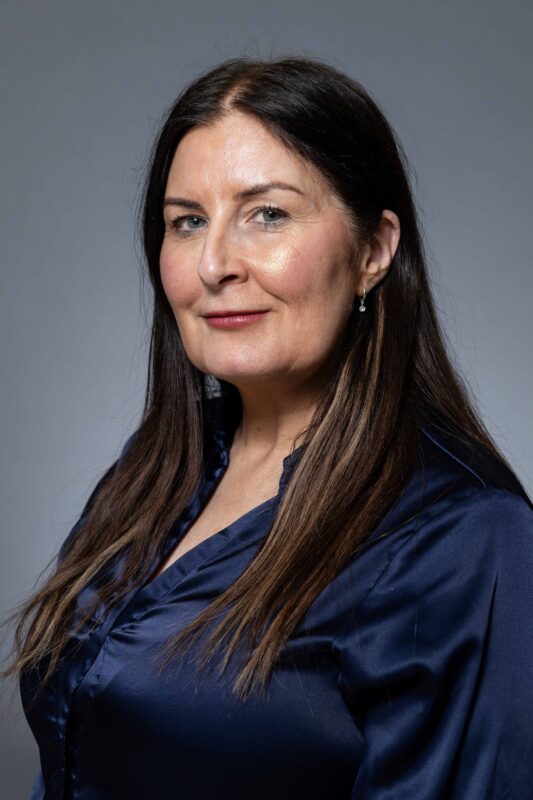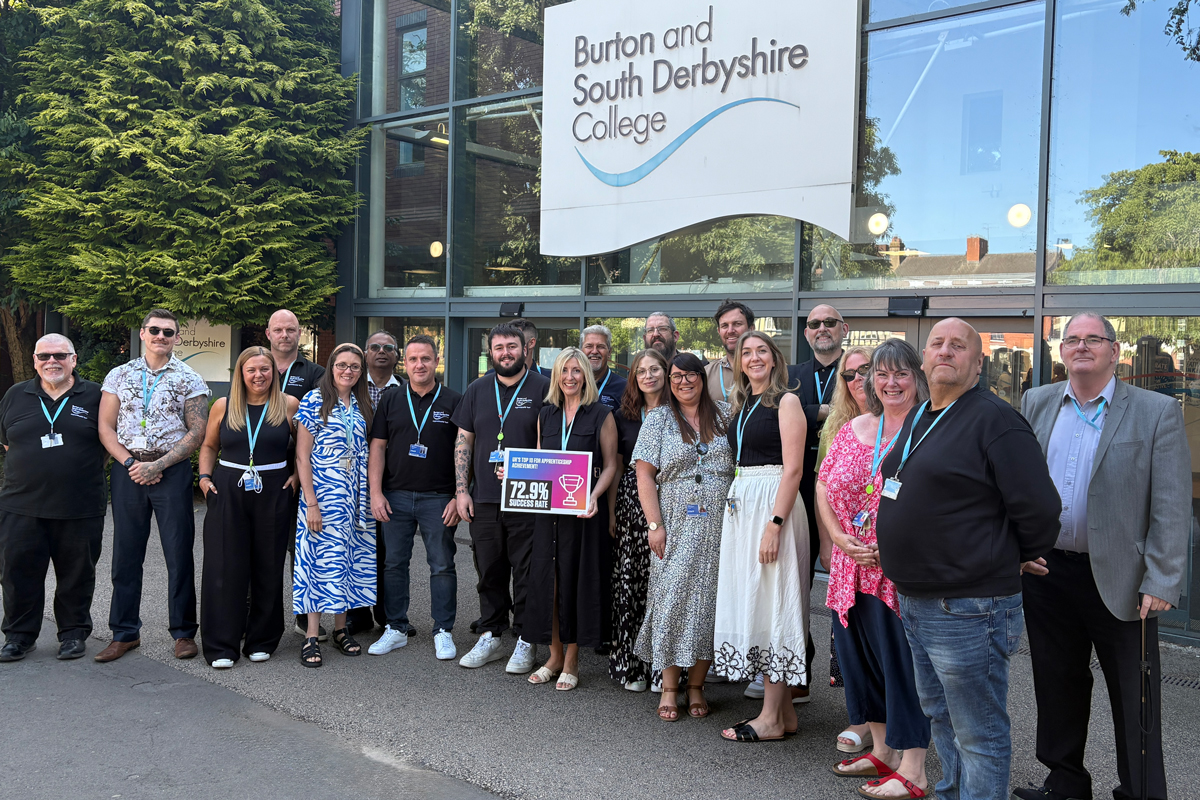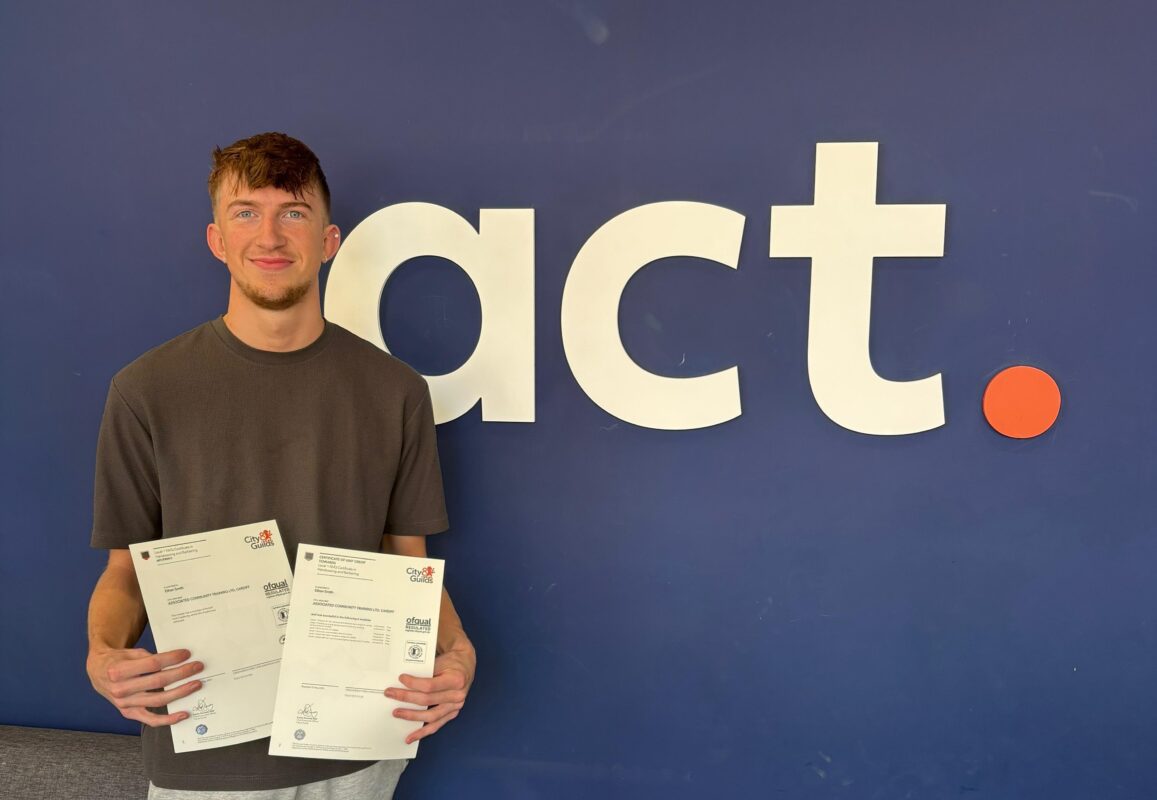Most employers plan to maintain or increase number of apprentices they employ this year

Almost 9 in 10 employers plan to maintain or increase the number of apprentices they take on in the next 12 months, according to the results of a new survey of more than 600 employers in England.
The report, published by The Open University, in partnership with The 5% Club, highlights that employers recognise the value apprenticeships bring in terms of diversity.
- In fact, 68% of organisations that employed apprentices felt that they make a big difference in supporting people from lower socio-economic groups in the workplace.
- 75% of those surveyed reported that apprenticeships are important to help people without degrees or with low prior attainment.
- Almost half (46%) said that apprenticeships are important to support more people from black, Asian and minority ethnic backgrounds into the workforce or to progress their careers.
Commenting on findings, Viren Patel, Director of the Business Development Unit at The Open University said:
“Our survey shows that employers are hugely positive about the diversity and inclusion benefits that apprenticeships bring to organisations. However, the survey also shines the light on the fact that not all employers have active plans to recruit from underrepresented groups in the workforce in the next year. Apprenticeships present a real opportunity for employers to look for hidden talent both inside and outside their organisation and provide the flexibility to unlock future talent.”
Mark Cameron, CEO at The 5% Club highlights:
“The 5% Club exists to promote positive employer action for increased, inclusive and accessible workplace learning for all, and we are delighted to partner up with The Open University to explore the insights and proposed employers’ next steps arising from this survey.
“The upcoming roundtable will bring to life action planning for success with a particular focus on genuine inclusion in recruiting practice. Improving access to training and employment opportunities for underrepresented groups is fundamental to addressing our national skills shortfalls, as well as reducing the high-levels of inequality in our society.”
Almost 7 in 10 (69%) of employers are seeing the transformative impact taking an apprenticeship can have on the learner.
Martyn Carroll’s story highlights this. Martyn has dyslexia and found school difficult so left aged 16.After a career in the armed forces, he is now working for South Western Railway whilst studying for the Chartered Manager Degree Apprenticeship with The Open University to progress his career.
Commenting on the impact of the degree apprenticeship Martyn said:
“It’s lighting that fire inside again. When I finish the degree apprenticeship, I can potentially look for bigger and better jobs within South Western Railway.”
Another OU apprentice, Folashade Yusuf-Adewuyi, spent her childhood watching her mother provide care in her community in Nigeria. She is now onethefirst Nursing Associates at Kent Community Health NHS Foundation Trustto qualify through an OU apprenticeship. As a mother of three, the higherapprenticeship allowed Fola to learn whilst she earned, gain practical skills, and become a registered Nursing Associate with the Nursing and Midwifery Council.
However according to the polling, only a third (31%) of employers were planning on recruiting apprentices from lower socio-economic groups,34% plan to hire people without degrees or with lower qualificationswhile only 30% plan to recruit more apprentices from black, Asian and minority ethnic backgrounds. A similar pattern was found in the survey around plans to recruit apprentices with disabilities, from care backgrounds and ex-offenders.
Discussing the report further, The Open University is hosting an expert webinar panel with The 5% Club and Amazing Apprenticeships on 9thFebruary 2022. Sign up for the webinar here.
Case studies
Fola’s story
Fola is one of the first Nursing Associates to qualify through an OU apprenticeship. After spending her childhood watching her mother provide care in her community in Nigeria, Fola is proud to be carrying on the family tradition following her move to the UK in 2007.
With three children to look after, finding a flexible way to achieve her ambitions was vital for Fola. She signed up for a Nursing Associate Higher Apprenticeship at the Kent Community Health NHS Foundation Trust’s Nursing Academy.
It allowed Fola to learn whilst she earned, gain practical skills, and become a registered Nursing Associate with the Nursing and Midwifery Council.
To read more about Fola’s story visit: open.ac.uk/business/news/apprenticeship-week-stories-fola
Martyn’s story
Martyn has dyslexia and so he found school very difficult, which he left aged 16. After school, he joined the army where he stayed for 23 years before working for South Western Railway later in his career. He’s now undertaking the Chartered Manager Degree Apprenticeship, which for him includes getting his Level 2 Maths and English, something the OU has helped him with, alongside support for his dyslexia challenges.
To read more about Martyn’s story visit:open.ac.uk/business/knowledge-hub/degree-apprentice-building-new-career











Responses